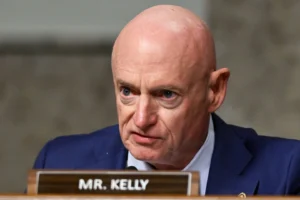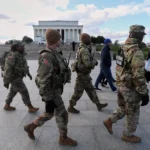LEGISLATIVE WATCH WYOMING: After Near Death in Senate, Bill to Stop Crossover Voting Advances
HB 103 would prevent voters from switching parties ahead of primary election
- Published In: Politics
- Last Updated: Feb 17, 2023
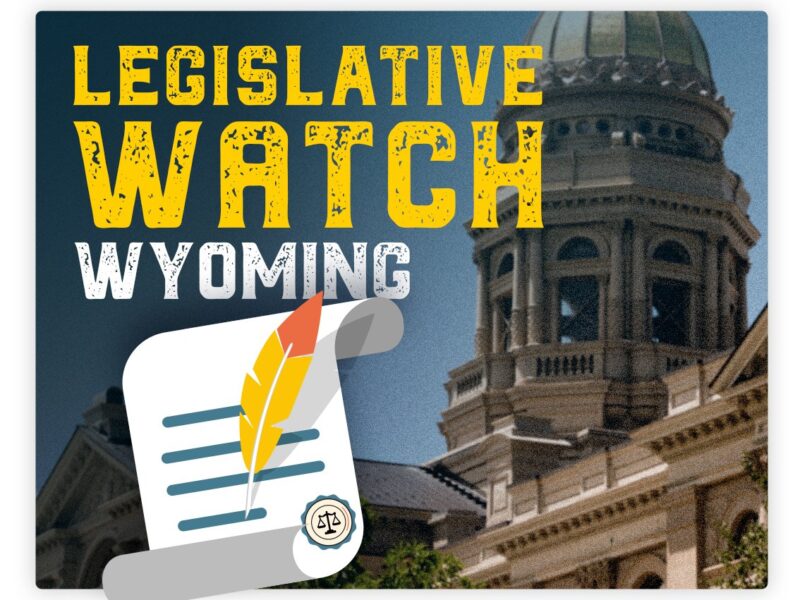
By CJ Baker
Special to the Wyoming Truth
Just over a week ago, it appeared the Wyoming Republican Party’s long-running effort to prevent Democrats and unaffiliated voters from participating in the party’s primary election would have to wait another year. But after an unusual resuscitation in the state Senate, a bill that would severely restrict so-called crossover voting may now be heading toward passage.
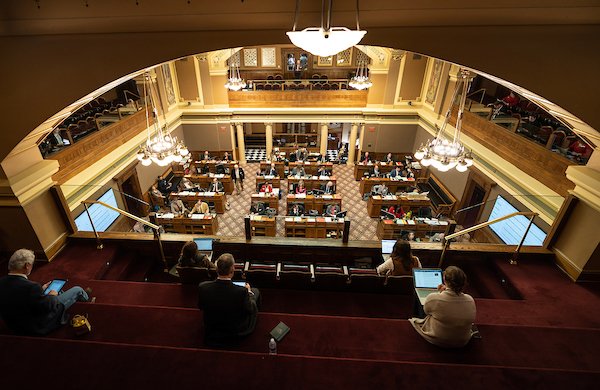
House Bill 103 — which cleared the Senate Revenue Committee Thursday — would prevent voters from changing their party once candidates begin filing for office.
It matters because Wyoming’s primary election ballots are party specific: Republicans pick Republican candidates to send to the general election ballot and Democrats pick Democrats. However, Wyoming allows voters to change parties on election day. HB 103 would instead make voters choose a party at least 96 days ahead of the primary.
The legislation has the support of the state GOP and Republican Secretary of State Chuck Gray, who assert crossover voters are helping elect Republicans who may not follow the party’s platform.
Wyoming Republican Party Executive Director Kathy Russell told the revenue committee that hundreds of GOP members feel disenfranchised by the current system, with their voices diluted by crossover voters.
“They can do everything they can to try to promote candidates who support the platform … but if somebody comes in and is voting strictly on a person, that goes out the window,” Russell said.
Supporters of the current system say voters should be allowed to pick the candidates of their choice.
“We have voted in this state for years and years and years, [and] really have had no problems until the state party — which is an abomination — started getting involved in saying, ‘Gee whiz, too many Democrats are coming over to be Republicans or to vote as Republicans and so forth,’” said former Republican state Rep. Pete Illoway of Cheyenne. “We don’t have a problem. We have a problem with the party.”
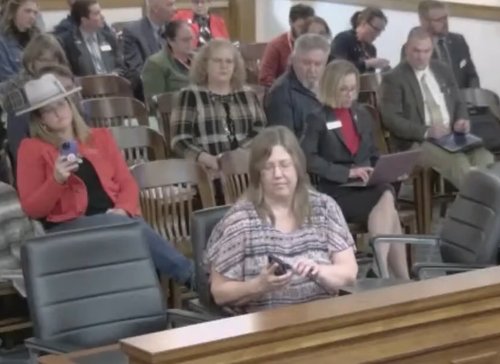
Riverton High School teacher Becca Pierson — who brought some of her social studies students to Thursday’s meeting — said she’s a moderate Republican and loves being able to vote for whoever she wants.
“One of the reasons I live here is because we give a freedom to our people that not many other states do,” Pierson said.
Sen. Bob Ide (R-Casper) suggested that most Republicans — the majority of the majority party — favor the bill, and the committee heard from several of them.
“It’s not much different than the Hatfields and the McCoys,” said Sherri Davis of Sundance. “I don’t think the McCoys would appreciate the Hatfields coming and choosing who was going to represent them — and we’ve certainly had that for quite some time.”
She said the current process “says you can impact and bring moderate representation to what we know is a conservative state.”
Robocall encouraged crossover voting in 2018
While crossover voting has long been an issue, it came to a head during the 2018 Republican primary, in which eventual Gov. Mark Gordon beat a more conservative candidate, Foster Friess, by 9,100 votes. Though it’s unknown how they voted, some 10,400 Wyoming voters changed their affiliation to Republican in the weeks leading up the election — and some had been encouraged to do so by a campaign called Switch for Wyoming.
On Thursday, Davis replayed a Switch for Wyoming robocall placed the day before the August 2018 primary. The recording encouraged Democratic and independent voters to temporarily become Republicans and help stop “pro-Trump conservative Foster Friess” in favor of Gordon, a “moderate, reasonable candidate … who won’t be beholden to Trump.” The recording said a Gordon win would send a message that “Wyoming is not Trump country.”
Revenue Committee Chairman Sen. Bo Biteman (R-Ranchester) said he found the robocall campaign “very disturbing.”
“Those people had no intention of ever being an actual Republican. They were doing it to game the system because we allow it to happen within our statutes,” Biteman said. “And that’s the genesis for this bill.”
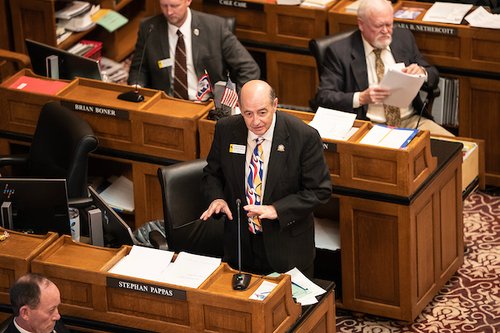
While some speakers raised concerns about disenfranchising voters, Sen. Troy McKeown (R-Gillette) and others described the primary as a party function.
“This isn’t an election, necessarily,” McKeown said. “It’s a primary aimed at one party or another party selecting somebody to run to represent that party.”
Jenn Lowe of the Equality State Policy Center countered that primaries were not created to protect political parties, but because “voters wanted to take the power out of dark, smoke-filled rooms and have an opportunity to voice who they would like to see as candidates.”
Biteman cautioned that, “if this keeps getting defeated, this bill, what you probably will end up seeing is the Republican Party pulling out of the whole primary process and going to a caucus — back to the cigar-filled room that you just mentioned.”
After cruising through the House on a 51-9 vote, HB 103 was defeated by the Senate’s Corporations, Elections and Political Subdivisions Committee, 3-1 on Feb. 9. However, the Senate revived the legislation on a rare 19-12 recall vote Tuesday and rereferred it to the friendlier revenue committee.
Sen. Stephan Pappas (R-Cheyenne) cast the lone “no” among the panel’s five members Thursday. Of those who voted in last year’s primary, 94.4% were Republicans, and Pappas predicted that restrictions on switching would just prompt more people to permanently join the GOP.
“… but everybody’s going to be in that party, Democrats and Republicans,” he said. “And I don’t know if that’s a very, I guess, healthy situation.”
HB 103 now heads to the Senate floor, where it faces a series of three readings.





